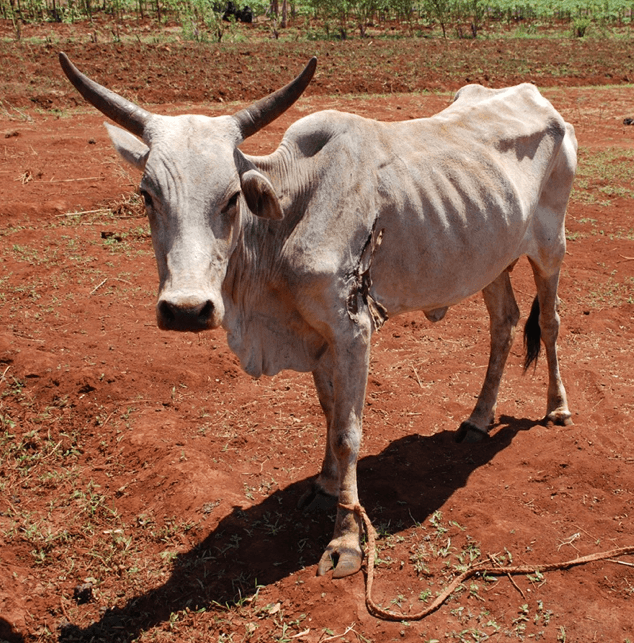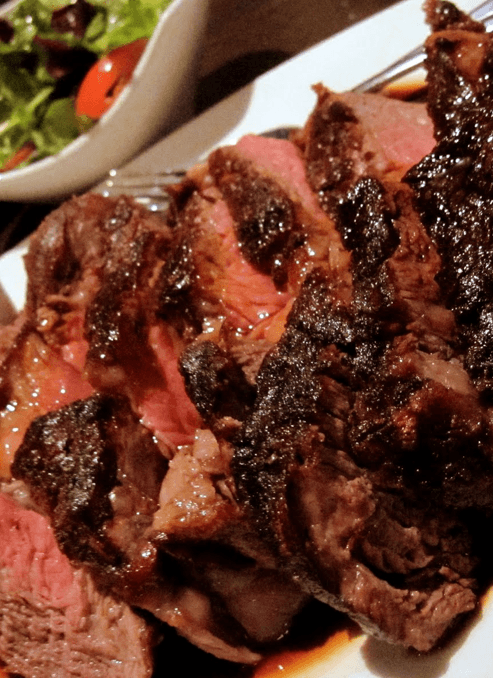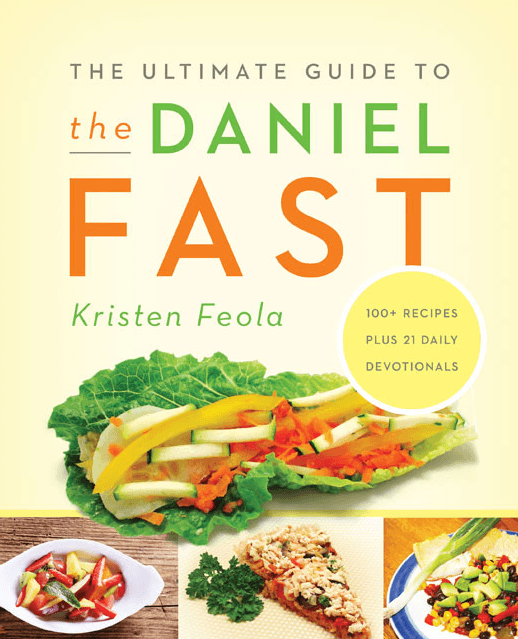 Have you seen the news for the latest breakthrough weight-loss program, The Daniel Plan, by Rick Warren? It’s a 40-day plan (like his other books) to help individuals and church groups take off the flab and get in shape.
Have you seen the news for the latest breakthrough weight-loss program, The Daniel Plan, by Rick Warren? It’s a 40-day plan (like his other books) to help individuals and church groups take off the flab and get in shape.
Like other Bible-based diet plans, it’s built on the story in the first chapter in Daniel. Daniel and his three friends were training to become a part of the king’s court, but being Jewish they didn’t want to partake of the unkosher fare of the royal table. So he proposed that they only eat vegetables and water for 10 days, after which time the officials said they looked better than everyone else!
In our weight-obsessed world, we resonate with this story of victorious dieting. But can I let you in on a little secret?
Daniel’s diet plan actually made them fat.
You may not catch this in the NIV translation, which says that after ten days they were “better nourished than any of the young men who ate the royal food” (Daniel 1:15). But the Hebrew word that is used where you see “better nourished” is actually bari, which means “fat.” The more literal ESV spells this out, that Daniel and his friends had become “…fatter in flesh than all the youths who ate the king’s food.” They hadn’t lost weight, they had gained it on his diet plan!
The word “bari” is used other places where it obviously refers to being fat. In God’s rebuke of the priest Eli in 1 Sam 2:29, he says:
Why do you scorn my sacrifice and offering that I prescribed for my dwelling? Why do you honor your sons more than me by fattening (bari) yourselves on the choice parts of every offering made by my people Israel?
Eli’s sons were taking their priestly portions before the fat was boiled off the meat, and were gaining weight because of it.
 Another place where bari is used is in describing the seven cows in Pharaoh’s dream that represented the seven good years — they were “beautiful and fat (bari).” The seven cows of the seven famine years were “ugly and gaunt” (Genesis 41:26).
Another place where bari is used is in describing the seven cows in Pharaoh’s dream that represented the seven good years — they were “beautiful and fat (bari).” The seven cows of the seven famine years were “ugly and gaunt” (Genesis 41:26).
Did you catch that? The ugly cows are the gaunt ones. That’s actually a clue to Daniel’s story too. A person wanted to weigh more, not less in biblical times. It was only too common for people to be bony and malnourished — hunger was a common occurrence. Being well-fed was a sign of good health.
A Ugandan friend of mine said that this is true where he comes from too. It’s a compliment to tell a friend, “You’re looking fat!” When a person is ill, has had a bad harvest, or is mourning, they lose weight and look haggard and gaunt – and no one wants to look that way.
What’s going on in Daniel’s story is that a small miracle was occurring, because normally a diet of only vegetables left a person thin and weak. God honored their faithfulness to Jewish dietary law and avoidance of meat sacrificed to idols so that they put on weight instead. It’s reminiscent of the later story where Daniel and his friends were thrown into the furnace because they refused to bow to the idol, and they emerged unscathed when the guards perished from the heat.
Which foods are the best?
You might be surprised about what foods are called “the best” in the Scriptures. In Isaiah 25:6 it says,
On this mountain the LORD Almighty will prepare a feast of rich food for all peoples, a banquet of aged wine — the best of meats and the finest of wines.
Here, “rich food” is shemanim – meaning “fatness,” literally “oils.” The “best of meats” is likely meat well marbled with fat, or served with marrow. The RSV actually renders this line, “a feast of fat things, a feast of wine on the lees, of fat things full of marrow, of wine on the lees.”
Fat things full of marrow! Hardly a weight loss plan.
I n Psalm 63:5, it goes even further. David praises God by saying that his soul will be “satisfied as with the richest of foods.” In Hebrew, the “richest of foods” is literally “suet and fat”!
n Psalm 63:5, it goes even further. David praises God by saying that his soul will be “satisfied as with the richest of foods.” In Hebrew, the “richest of foods” is literally “suet and fat”!
Can you imagine suet being called the “best” food? When the Bible speaks of food as the “best,” it isn’t likely referring to some health benefit, but that it was the most appealing to people. Fatty foods must have been especially tempting when you barely had enough calories to get through each day. This is why the fat of a sacrifice was offered to God. It was the portion that was considered the best of the best.
This is also why the Bible actually uses imagery of fattening foods to describe our final heavenly banquet, because these have been such rare, mouth-watering treats down through the ages. Nowadays we have such easy access to rich food that we’ve made ourselves sick with obesity.
Reading the Bible Upside Down and Backwards
My main point here is not to tell you to eat more fattening foods, but to point out that you shouldn’t hunt through the diets of biblical people to find a weight-loss plan. Why? Because the biblical world, like the most of the world throughout history, struggled against hunger, not flab.
To search the Bible for secrets for slimming down is to read it upside down and backwards of what the text is actually saying.
 Of course God wants us to be healthy, and would be pleased if some of us took off a few excess pounds. But it’s important to not to ignore what Daniel’s story actually meant originally, and extract lessons that it never intended to teach.
Of course God wants us to be healthy, and would be pleased if some of us took off a few excess pounds. But it’s important to not to ignore what Daniel’s story actually meant originally, and extract lessons that it never intended to teach.
One thing that Daniel’s story can do is to give us some perspective on how good we have it. It reminds us to be thankful for all the foods we eat today that graced only a king’s table in biblical times, that are still rare for many in the world even today.
~~~~~
Note: The word for “vegetables” in Daniel 1:12 and 1:16 isn’t yaraq, which means “green plants and herbs” as in “Better a meal of vegetables (yaraq) where there is love than a fattened calf with hatred.” (Prov.15:17) Rather it is zero’im, which means seeds. The JPS translates the word as “legumes,” and the KJV uses “pulse,” which means beans/lentils/seeds. Beans and lentils have more protein than carrot sticks and broccoli. Then it may not have been quite so shocking that Daniel and his friends bulked up as much as their friends who feasted with the king.
Lois Tverberg says
As I said above, my apologies for the comments that have been deleted here. For some mysterious reason, the site has lost all the comments written on every article in the past three months. I’m hoping to restore them.
Mary says
Odd that when you first put this on Facebook, something wouldn’t let me post a comment.
I’m wondering about something. When Daniel and the other young men were taken from Judah to Babylon, would they have been suffering from any nutritional lack because of hardships during the seige before capture? Don’t know if I am accurate in the history here, just wondering if they could have been skinny before they even got to Babylon. Or maybe if they were from (NIV) “the royal family and the nobility” if they’d have had sufficient provision.
Nancy Johnsen says
I appreciate the insights which give more glory to God in this story, that because the Hebrew young men in captivity refused to eat non-Kosher food, God made them thrive on a diet of beans and seeds and lentils. Isaiah 55: 1-2 (KJV) concludes “…eat ye that which is good, and let your soul delight itself in fatness.” Would that also be “bari” in Hebrew? As one who struggles with obesity, I will not try to follow Biblical diets to slim down.
Clifton Payne says
Great article Lois. I passed it on on my facebook page.
Lucas says
From my reading of the Daniel plan the diet isn’t based on what Daniel ate but inspired by it. The book challenges us consider all of the man made chemicals we digest through our foods and the incredible amount of sugar. Many people confuse the Daniel plan with the Daniel fast. These are totally unrelated. I have found the book to be challenging and has soured me on to love God by bing a good steward of this body he has given me.
Rachael Starke says
@Lucas – Except, as Lois points out, that’s not the point of the passage. Daniel was choosing to obey God and maintain his identity as a follower of Go, and his diet simply one visible means to that end.
Basing set of behaviors on man made ideas that are “inspired” by Scripture, instead of adhering to Scripture, is what’s known as “eisegesis”. And it’s choking the spiritual health of American churches, regardless of how much it affect their physical health.
Lois, I can’t tell you how many times I’ve referenced this post in my talks with others. I’m working on a review of a couple of different so-called Christian manuals for eating, and I will be referencing this post for sure. Thanks for your work.
Robin says
If your purpose is to inform readers of the original meanings of verses based on the original Biblical writings, it would have been informative and appreciated. I feel, though, as if you chose a title for your article that would immediately throw suspicion on a healthy, well-planned book that was created to help, not judge, and not be critical of the people who want to honor God with their bodies as well as their lives. So if you are determined to tear others down instead of simply informing us of the true meanings of the Biblical passages, then you may want to possibly consider making sure your Biblical info is at least all correct. Daniel was not thrown into the fire with his friends. It appears as though he was not even present in this particular story.
I found your article very interesting until it felt like you really were more into the details and fine print than the grace of God.
cynthia says
This post refers to the story in the first chapter of Daniel…not the story of the fiery furnace. Lois is a well respected scholar and author and all who are familiar with her work know that her purpose is never to tear down…for me it has been the opposite…her words inspire me to build up. Several posts that come to mind that illustrate to me, the heart from which Lois works are…
Taking my thumb off the Scale – judging favorably and mercifully
http://ourrabbijesus.com/articles/taking-my-thumb-off-the-scale/
Putting Out a Tongue of Fire – http://ourrabbijesus.com/articles/putting-out-a-tongue-of-fire/
elizabeth says
Rachel,
you are dead-on correct.
why do people take a Bible idea or words and morph it/them into something else with contributions of their own?
They are unwilling to be perfectly obedient and subject to God, to learn His wisdom — it is a form of the rebellion that permeates the unregenerated human being.
and then the outraged prides that breaks forth upon light being shed on this behavior — where is it coming from?
not from God.
John Roper says
In a country where the average person dies of heart disease, diabetes, & high blood pressure, etc… Why do we continue to deny what the Bible says about our health and eating habits? The scripture clearly states that man was intended to eat vegetables from the beginning and that we will return to that food in the millennium. Telling people that they will get fat eating the why Daniel did is a completely wrong understanding of the text. That they were healthier than those who ate the rich food of Babylon is the point of the story – not that they got fat! This is one of the worse exegesis I have ever seen – apparently all for the purpose of justifying our horrible diets? Go back and reread the scripture and look at the scientific facts of how our food that we eat is killing us. The scripture clearly states for us to “Come out of Babylon, my people, so that you do not participate in her sins and suffer from any of her plagues.” Rev 18:4 While this pertains to more than just food, it is precisely what Daniel did. All you have to do is let the scales fall from your eyes and look around at the terrible health of most in the USA to know that we aren’t doing it the way God intended.
Lois Tverberg says
John, it looks like you profoundly misunderstood my article. My overall point is not about food or health at all, actually, and I said this more than once. It’s that you need to read it in light of the issues that people had in its time, not your own, and should not try to twist the text into addressing an issue that it does not intend to.
John Roper says
Well, I will grant you that I went on a rant because eating according to what the Lord’s Word says about how we are meant to eat is a personal mission for me. However, you are the one who titled the article “Why the Daniel Plan might make you fat”, so this is where I get the intention of your article from. Perhaps you only meant it as a little “sensationalism” to get readership. Or perhaps you get frustrated at people “commercializing” passages from scripture. (An attitude that I can sympathize with) Eating the way he did was basically returning to the way men ate from the time of the garden till the time after the flood. I agree with you that it was his only option since eating Kosher was impossible under the circumstances and that he was doing it as an act of remaining faithful. Daniel told his guardian to test him for 10 days and see if his diet didn’t make him and his friends healthier that the others. The text includes that his appearance was superior. Anyone who eats as Daniel did will also find that they experience “a small miracle” with their health as well. I doubt that Daniel and his friends would look fat by our current standards.
In any event be blessed.
Lois Tverberg says
John, it sounds like we agree overall. My main point wasn’t actually about diet at all, but about reading the Bible but ignoring its larger context. (You’re right that Rick Warren’s book was a teaser meant to remind people about the number of “biblical diet” books out there.) And I’m sure you’re right that “fat” by biblical standards probably was pretty slim by ours.
Shelly Horton says
The Daniel Plan makes no claims to be “a breakthrough weight-loss program”. It is a lifestyle change to living a more healthy life with less stress and more energy so that we will be more physically and mentally able to serve the Lord and His people. I don’t care what the scale says and have no desire to be “gaunt”. Have I lost weight? Yes! Not because I’m starving myself – I have simply changed what I eat and how I spend my time.
Maryb says
I am almost through with the Daniel Fast and let me say that my husband has lost 10 lbs and I have lost at least 5, probably more by now. Our intent was on the spiritual, not physical, but eating according to what she believes Daniel ate, we’ve lost weight, my skin us actually clearer and softer and I now feel great, although I had some rough spots. I say go for it with prayer as the thing you turn to instead ofvwhatvyoy give up!
Mike D says
I completely agree with your reading of Daniel 1:12, and I agree with your interpretation that the eating of legumes would have actually brought on weight gain to the average individual living in those times, and as the account points out, it actually did. I think these days though, when we live lives in such excess and with such overabundance, that kind of diet would probably have health benefits that would include weight loss.
I also don’t really agree with the previous poster who stated that we only ate vegetables in the times before either sin or the flood (it always depends on the teller). I think that is very much up for debate, and actually requires reading more into those texts than is actually there.
In fact, there are many indications otherwise. For instance, the scriptures you referred to in Isaiah 25 are very clearly referring to the future time in the Kingdom in which meats are eaten… as it specifically says (25:6-9: “On this mountain the Lord Almighty will prepare a feast of rich food for all peoples, a banquet of aged wine—the best of meats and the finest of wines. On this mountain he will destroy the shroud that enfolds all peoples, the sheet that covers all nations; he will swallow up death forever. The Sovereign Lord will wipe away the tears from all faces; he will remove his people’s disgrace from all the earth.
The Lord has spoken. In that day they will say, ‘Surely this is our God; we trusted in him, and he saved us.
This is the Lord, we trusted in him; let us rejoice and be glad in his salvation.'”
That isn’t some esoteric statement about salvation in general, it’s summarizing the state of things at the point when all of creation is delivered from death and bondage. There are scriptures that directly state that animals will no longer eat other animals, but that this diet change extends to human beings is hardly conclusive in scripture, and in fact the case can be made as I showed to the opposite conclusion.
Cheryl H says
I have to say I am not losing weight on the Daniel Plan
and after reading part of the book – the repetition of scripture verses bothered me. The same ones are used over and over. History is correct, as well as the Bible,
that the real reason they didn’t want to partake of the food was because of religious reasons.
As a follower of Jesus, I really have to question this book and the mega sales of hats, shirts, etc. that go along with this, why was it necessary for Rick Warren to corroborate this book with Drs. who practice eastern religions – but are so popular with the public? It seems this taints the spiritual food here (maybe like the food Daniel wouldn’t eat?)
Lois Tverberg says
Once again, I’ll just remind commenters that the point of this article is *not* about dieting. It is about ignoring the Bible’s original context in order to wring out of it ideas that it is not teaching.
Kwazeke says
Thanks for your teachings its been worrying me for years,WHY ARE WE LOOSING WAIT while Daniel n His Friends were GAINED WEIGHT.Please advise me more on what to EAT together with beans,lentils n seed to GAIN.I never been on this fast for year because I loose a lot of weight which I don’t like. I was wondering if we are not doing it RIGHT if we loose weight. Thanks looking forward to your help.
Armintha Williams says
it’s really good to see so many response, on the Daniel fast, but for me I will trust Gods word in all things, Proverb 23:7 says so as he thinking in his heart, so is he: eat and drink have faith what you do, trust God’s word and you can have anything you want,
Vee says
I must say I’ve did the Daniel plan and to my surprise I lost 20 pounds ten days in. My skin looks great clear and my joints don’t hurt. My mind seems clear I can think and I’m not tired and weighed down. I noticed a difference in my health and I’m glad I did it. And I wasn’t trying to lose weight when I did it, it was a spiritual path for me. And wow what a wonderful feeling to get to know God. The plan gave my body what it needed to connect more with the Lord I guess that’s how it felt for me. Not saying this article is wrong because there’s more in our meat then the government/meat companies is telling us. Back then they hunted and killed their meat which is better then chemically filled meat that’s causing damage to our mind and bodies. I still eat meat but since the Daniel plan I eat a whole lot less of it.
Lois Tverberg says
Vee, it looks like you didn’t read the article. The point of Daniel’s “diet” in Daniel 1 was to gain weight, not to lose it. If you lost weight, you were reading the Bible backward.
Now go read the article.